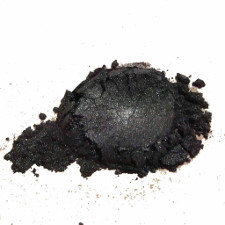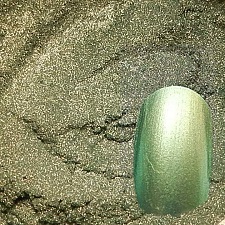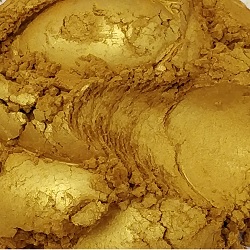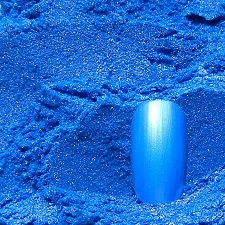Description
Black Satin Pearl Mica Pigment Powder
Introduction
Coloured Micas which is their popular name or Pearlescents as they are also called, are beautiful natural colours that are created by coating muscovite mica flakes with high heat resistant iron oxides, ultramarines (referred to as ‘nature identical’) or dyes.
What Is ‘Natural’
‘Natural’ is a word that is often used to describe products or ingredients. The definition of ‘natural’ according to the English Oxford Dictionary means ‘existing in or derived from nature; not made or caused by humankind’. Coloured micas are made from ingredients formed from mineral rocks and we can probably all agree that rock from the Earth is natural. Of course to put these crushed rocks onto your face or in your cosmetic products without refining and purifying them first would be totally irresponsible practise not to mention extremely painful!
How Are Coloured Micas Formed?
They must go through a complex manufacturing process involving mica flakes, occasionally titanium dioxide and iron oxides or ultramarines depending on the end colour, to become the stunning colours that we have all come to know and love. For cosmetic use, coloured micas must then go through an extra process to refine and purify them even further which brings them to cosmetic grade standards for use in all products defined as cosmetic.
What Can Coloured Micas Be Used In?
They are used in a wide variety of applications including decorative paints such as for car paintwork, wonderful effects can be achieved on the artists canvas as well as caligraphy. They are also used in card making, candle making (normally to decorate the surface) and of course cosmetics including soaps.
Cosmetic grade coloured micas are most famously known for their use in mineral makeup and are the preferred choice for colouring mineral eyeshadows, lip products, blushers, etc. They are also used by nail enthusiasts in nail polish and have gained incredible popularity as a natural alternative to colour soaps.
Are All Coloured Micas The Same?
No. The colour range of coloured micas can cover the whole spectrum and beyond! Within that spectrum, you will then find certain colours can be metallic in nature, others iridescent, there are colour shifters as in chameleon and so many more. Then there is the system for size grading of coloured micas and in fact most mineral ingredients, this is done in microns. With coloured micas, generally the lower the micron size, the more inclined they will be to shimmer rather than sparkle and the coverage will be heavier. The higher the micron size the more sparkle they will have and less coverage.
To Dye Or Not To Dye
Coloured micas coated with artificial dyes can bleed somewhat in soap, so when buying coloured micas for soap making, it is always best to check with your supplier on which type of micas they stock.
We choose not to stock coloured micas containing artificial dyes as we prefer to keep our products as close to ‘natural’ as we possibly can.
Coloured Micas In Cosmetics
Add them singularly to pre-mixed eyeshadow bases for stunning eyeshadows or make up your own tailor made colour blend by mixing a few together. They are not limited to eyeshadows either, some of the more muted pinks, lilacs, peaches and browns can be added to blusher bases to give a very pretty effect.
They can also be used as eyeliners, just dampen your eyeliner brush, tip a little out of your container into the lid or on to the back of your hand, dip in and draw – as simple as that! Remember, not to dip your wet brush into any containers of mineral powders, tip a little out first and use.
Either way, in formulating mineral makeup we need these beauties like an artist needs his palette!
Note: It is important to remember that you should never grind your coloured micas unless you want them to lose their lustre.
Coloured micas are very sparkly and when used in M&P their vibrancy and sparkle is magnified even more. When mixed into the opaque batter in cold process soap they loose much of their sparkle but still retain their colour but less saturated. When used to decorate the surface, using many popular techniques such as mica oil swirls, our colours will really make your products stand out from the crowd.
The coloured micas that you see in this category are the most popular colours used regularly in CP soap by our wonderful community of soapers.
Suggested usage rates:-
CP Bases – 1.0% to 5.0% calculated by total weight depending on the desired colour intensity.
Opaque M&P Bases – 1.5% to 2% calculated by total weight. This equates to 3tsps to 5tsps of Coloured Mica per 500g of base depending on the desired colour intensity.
Clear Translucent Bases- 0.25% to 0.5% calculated by total weight. This equates to ½tsp to 1tsp of Coloured Mica per 500g of base depending on the desired colour intensity.
The above information is for general research purposes only and is not a representation or warranty of any kind. This material is not intended to diagnose, treat, cure or prevent any disease. The user of this material is solely responsible for determining fitness for any particular use; requesting and reviewing the applicable Material Safety Data Sheet; and compliance with all applicable laws and regulations. Terms and conditions apply





What others are saying
There are no contributions yet.